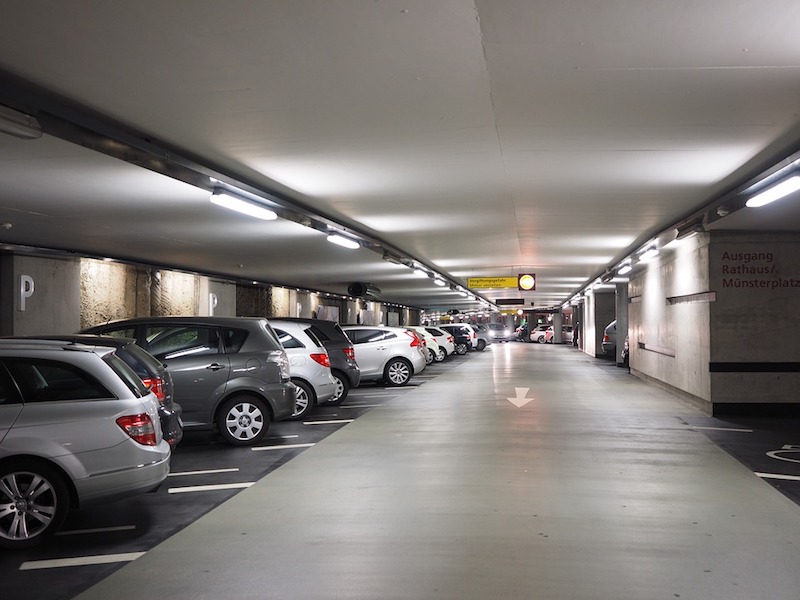More cities are loosening parking requirements for new developments, but there is no single formula for reducing parking that will work for every community.
Often, the first step is to regulate street parking for residents facing reduced in-building parking, according to representatives from Walker Consultants. Parking pricing and time restrictions make existing parking space more efficient and ensure that on-street parking spaces are available for visitors and customers.
Another effective strategy is to employ a shared parking model by activating unused office or apartment parking at times of the day when the spaces are typically empty. This cost-effective approach increases the capacity of each parking space. This also opens more land for other uses and reduces overall development costs.
Instituting paid parking via meters can fund transportation projects such as bike lanes that can reduce reliance on cars. Although some cities have used these policies to eliminate parking requirements on some new developments, most communities and developers will want to maintain some parking requirements for now, given that most Americans still rely upon cars for transportation.
Related Stories
| Sep 26, 2012
Automatic budget cuts in January would slash federal agencies' construction budgets
Sequestration, or the implementation of automatic budget cuts as of January 2013, would slash government agencies' already reduced construction budgets further, and require agencies to shelve some repair and maintenance projects.
| Sep 26, 2012
Investment in greener data centers to reach $45 billion by 2016
Investment in data centers built to green standards will increase from the $17.1 billion predicted for this year to $45 billion by 2016, according to Pike Research.
| Sep 26, 2012
OSHA fines on fall-protection violations challenged by New York contractor
A New York masonry contractor is contesting an OccupationalSafety and Health Administration $136,290 fine for violations of fall-protection standards.a
| Sep 26, 2012
Construction workplace deaths decline nearly 7% in 2011
There were 721 construction-workplace deaths in 2011, according to the Bureau of Labor Statistics, down 6.8% from 2010.
| Sep 26, 2012
Contractors save $9 billion due to revised California emissions rule
The California Air Resources Board made changes to a rule limiting off-road diesel emissions that could result in contractors saving about $9 billion.
| Sep 20, 2012
Smithtown, N.Y. considers bigger fines for building code violations
After a Suffolk County grand jury recommended stiffer fines for illegal demolitions, Smithtown, NY officials are weighing tougher penalties for developers who violate the town building code.
| Sep 20, 2012
AGC awarded federal grant to provide fall-protection safety program
The Associated General Contractors of America will continue to provide fall protection safety training next year after being awarded a federal safety grant.
| Sep 20, 2012
East Lansing officials accused of ignoring unauthorized project that led to partial building collapse
The unauthorized construction of a fifth-floor penthouse on a downtown East Lansing, Mich. mixed-use development led to a partial building collapse earlier this year.
| Sep 20, 2012
Reflective roofs could reduce rainfall in Arizona
Green standards may have to take into account the impact of reflective roofs on rainfall in the desert Southwest.
| Sep 20, 2012
Earth Advantage Institute offers green certification for small commercial buildings
Earth Advantage Institute announced a new green building certification aimed at new or substantially remodeled small commercial buildings built to green standards.

















